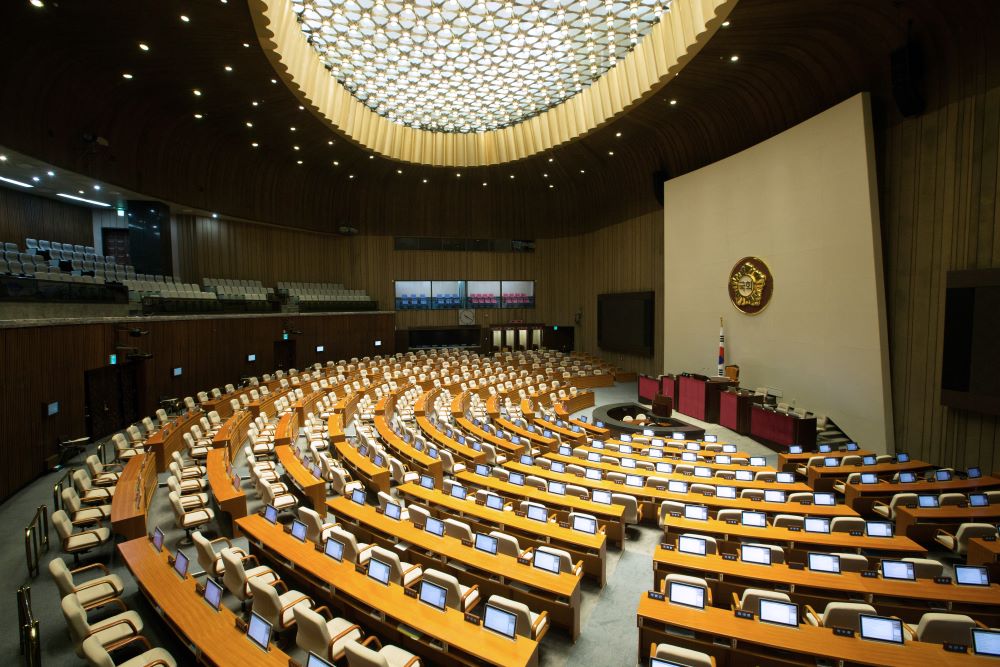Opportunities and Opportunism: Third-Party Three-quels
By Jonathan Joseph Chiarella
Politicians in Korea often form new parties. The ROK has no run-offs, but every level of government has some degree of proportional representation. This and local traditions limit the effects of Duverger’s Law, a law that gives a dismal prognosis for third-party entrepreneurs. The ability to create new parties without immediately fading into irrelevance makes for great opportunities. Excessive splitting, however, damages one’s “side” and sours politics in general with opportunism.
As per Duverger’s Law, first-past-the-post electoral systems (FPP) usually cause the country to support only two political parties. Under FPP, a minority winner who gets “first place” still wins. This encourages strategic voting and discourages vote-splitting. Korea saw the disastrous effects of the latter in 1987. (In a four-way competition for president, the outgoing dictator’s partner, Roh Tae-woo, won with only 36.6 percent of the vote in a four-way competition.) Because FPP elections are common in Korea, only two parties at a time pre-dominate, albeit with regular reformations and reshuffling.
One party usually hosts the conservatives and the far-right. The other is the party of the center-left. In presidential elections, notable individuals can force some changes, but after the dust settles, two parties remain. In elections for assemblies, however, independents and third parties are a regular feature. The economic left burst onto the political stage in the 2000s through an umbrella party, Democratic Labor. Had its members operated merely as a faction of a larger party, they would have been less significant, less distinct.
Democratic Labor went through several splits in the ensuing years. Excessive infighting has rendered several small parties. They rarely win districts or meet thresholds for representation. The recent victory of a Jinbo-dang (진보당) candidate in a Jeonju district came as a surprise. Splitting has also spelled trouble for those outside of the ideological squabbles of the left. The Minsaeng-dang (민생당) has held on, but it never outright won an election. It currently holds no offices. Park Ji-won’s appointment to Chief of the National Intelligence Service is Minsaeng-dang’s greatest success. Ahn Cheol-soo’s Citizen’s Party found itself swallowed up in the People Power Party with last year’s presidential election and the electoral alliance.
This last example especially offers a cautionary tale. Gwangju native Kwon Eun-hui came to prominence as a non-partisan, hard-hitting police officer in Seoul who followed a case all the way to then-president Park Geun-hye (later ousted for a bevy of crimes). Kwon took residence in Gwangju and won election to the National Assembly in 2016. In the following election, 2020, she did not represent a Gwangju district directly, but won as a proportional representation candidate for Ahn’s latest pro-reform, big-tent centrist party. In 2022, she opposed her party’s wholesale merger with the rightist-dominated People Power Party. However, she was in the minority; the union took place. Because Korean law does not allow politicians elected through proportional representation to leave their parties, Kwon now occupies an awkward position. She is officially in the People Power Party, but her influence and her voting habits run opposite. Mainstream politicos in the party have been keen to expel her, and she will certainly be out of a job next year.
At this point, observers may look warily on the “New Party” (새로운당) project led by Keum Tae-sup. Veteran politico Kim Jong-in sees Keum as a force majeure, but we should also consider the rebuke from those like Justice Party leader Lee Jeong-mi. Unlike her predecessors, Lee wants cooperation with other leftists. The “New Party,” being fairly centrist, is not competing with her voting base; her words carry more weight. (Note: her comments came before Justice Party member Park Won-seok announced interest in the New Party.) These projects serve as single-election machines that fizzle out as members rejoin the dominant parties – if they even win.
A cynical, but partially true, take is that the New Party hopefuls are just more people making themselves relevant as individuals by starting a new party. (Ahn failed to win the presidency twice, as well as the Seoul mayorship. Of the early New Party founders, only Yang Hyang-ja won in the last election). It may look good to wash one’s hands of imperfect incumbents, but reacting by claiming to be beyond normal politics while not touting practicable policy differences will only get you so far. Recent history speaks for itself.
Complete dominance by only two parties leaves many unsatisfied and can enforce bizarre dichotomies on adherents. One party becomes the party of welfare and gun control, or is it personal freedom? Another becomes the party of Christianity and militarism, until some pivotal year makes the “team” isolationist. On the other hand, having myriad parties brings downsides. Also-ran parties fail to become bargaining units. Reformist, big-tent parties become lost in the noise. To paraphrase: “the number of the counting shall be three … seven is right out.”
The Author
Jonathan J. Chiarella grew up in New York. He holds a BA in History (Rochester) as well as two MAs (Chonnam, Florida), and a Ph.D. in Politics (Florida). You can spot him riding the river trails or read his analysis of current affairs related to Honam or international relations.
(Photo: The National Assembly Plenary Chamber. Photo by the National Assembly of the Republic of Korea)







